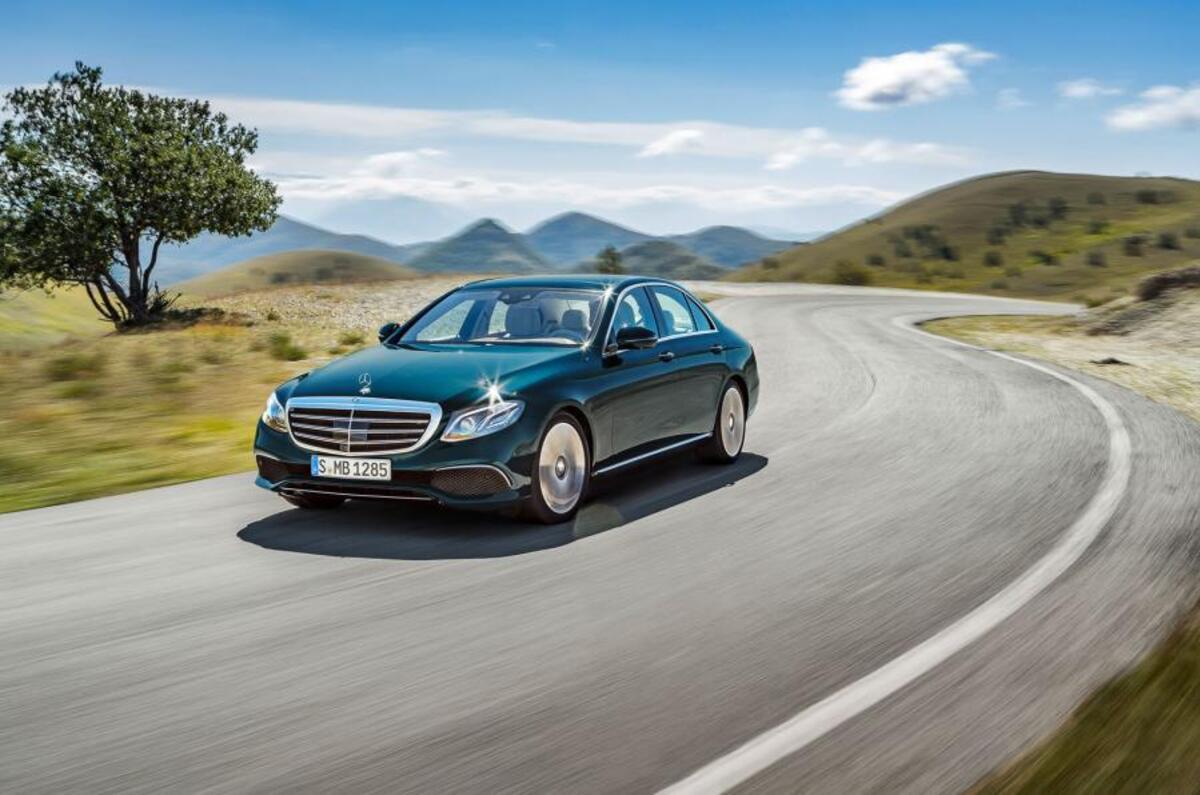It took Daimler's slap-up pre-show launch party for the new Mercedes-Benz E-Class - MC'd, as capably as ever, by the company's venerable chairman Dieter Zetsche - to show us how close this important new saloon is bringing us to autonomous driving.
The event will go down as one of my highlights of Detroit 2016, a vast hotel ballroom not far from the Detroit motor show's Cobo Hall, ringed on all sides for the evening with panoramic screens that at times massively displayed famous quotations about intelligence ('Beauty without intelligence is a masterpiece painted on a napkin'), and at others showed vast outdoor scenes that seemed to make the place as big as the Grand Canyon.
Zetsche's aim was to show us that this all-new five-metre saloon, looking much (some said too much) like its Cand Mercedes-Benz S-Class brethren, and as central to Mercedes-Benz's car portfolio as the Focus is to Ford, had surprising new built-in abilities that could work for its owners in new ways. It could anticipate difficult situations on the road and adapt faithfully to them, while motoring with unprecedented efficiency for a car its size. Its biggest party trick was a new level of connectivity with surrounding cars, which Zetsche labelled a 'Car-to-X', all in the cause of greater safety and efficiency.
Zetsche wouldn't put it as baldly as this, but I think he was telling us that getting on terms with the new E-class was all a matter of intelligence: to get the best from it, the owner is going to have to put time into learning it and adapting to it, but the rewards would be great. Perhaps this was even a new kind of car ownership. And you ran your relationship with the car from another magnificent Mercedes interior, progressive in design and reeking of quality. Could this really be the 'staple' Mercedes saloon, reaching back 11 generations into the late 1940s?
The event's 'featured artist' was an MIT expert on artificial intelligence, Andrew McAfee, who started by telling us that those who fear we're heading for overthrow by computers (Tesla's Elon Musk among them) were dead wrong: man would retain charge for as long ahead as we could look. His point, I think (although there was also point where he started to enjoy the sound of his own voice a little too much), was that increasing a car's intelligence was a fundamentally good thing and not to be feared.










Join the debate
Add your comment
plugged straight into the matrix
Mercedes' food and booze is very nice, apparently
"The other hacks were only there for Mercedes' lovely food and booze. Unlike me."
Car to car connectivity will be the standard very soon.
A huge issue for the car manufacturers is that to collect the sort of data that they need to build autonomous features they need to get the technology in use by as many customers as quickly as possible so they can collect the data. This probably means giving it away or making the technology very low cost. Of course these options are what drives profitability.